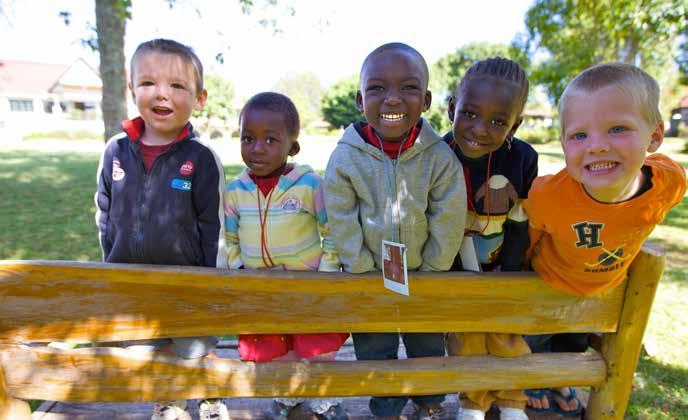
2 minute read
People Groups: MKs
Missionary Kids, referred to as MKs, have been part of the history of missions since the age of Modern Missions began in the late 1700s. But until recent decades, their unique characteristics and roles in missions have been little understood and largely unrecorded. Today their contributions, their unique life experiences, and their beneficial qualities are much better known and understood.
MKs’ exposure to other cultures and peoples uniquely equips them to influence their world as adults. Many MKs become leaders in the church, in ministry and in the world. Henry Luce was born to missionary parents in China in 1898. As a young adult he founded Time magazine–the first of its kind and still today the world’s most widely circulated weekly news magazine. The perspectives he gained in his childhood impacted his vision for an international news publication.
Advertisement
A new term, Third Culture Kids, was coined in the 1950s by researcher Ruth Useem. “A Third Culture Kid is an individual who, having spent a significant part of their developmental years in a culture other than their parents’ home culture, develops a sense of relationship to all of the cultures, while not having full ownership in any. Elements from each culture are incorporated into the life experience, but the sense of belonging is in relationship to others of similar experience.”* TCKS include MKs as well as the children of business people, diplomats, and other international workers.
Many adult MKs embrace their upbringings, with their blessings and challenges, and the unique experiences that have formed them. They continue to love and serve the Lord wherever they are. But like all children of Christian parents, they can choose to walk away from faith. Even the best of parents and community cannot guarantee their future choice.
At a Glance
- MKs are part of a larger group called Third Culture Kids (TCKs) – kids who develop a “third culture” that is distinct from the cultures of their parents and their host country.
- MKs gain skills to function well in many cultures.
- MKs can feel bonded to many homes, yet may struggle without a sense of one home to go to.
Ask God To:
- Give insight to missionary parents raising their children.
- Grant good planning to mission and church leaders in how to help whole families step into a Great Commission calling.
- Help MKs amidst transitions between countries, ministry locations and schools.
- Bring back to himself MKs who are not following Him.
”Definition from “Third Culture Kids: The Experience of Growing Up Among Worlds” by David Pollock and Ruth Van Reken
AFRIGO: email: afrigo_english@sim.org www.afrigomissions.com ALLONS-Y ! : email: redactrice@sim.org www.allons-y-afrique.com
SIM Southern Africa P.O. Box 30027 Tokai, Cape Town 7966, South Africa Tel: +27 21 7153200 za.enquiries@sim.org
SIM West Africa 08 BP 886, Abidjan 08 Côte d’Ivoire Tel: +225 22 44 70 09 westafricaoffice.personnel@sim.org
SIM East Africa P.O. Box 5966 Addis Ababa, Ethiopia Tel: +251 911 206 530 east-africa.office@sim.org






